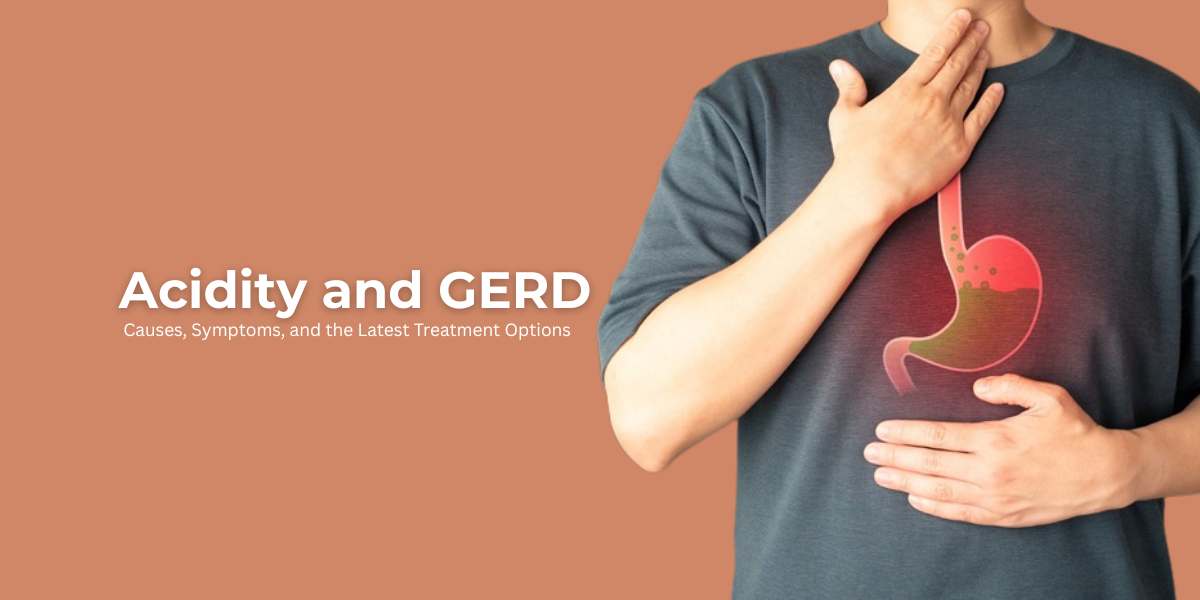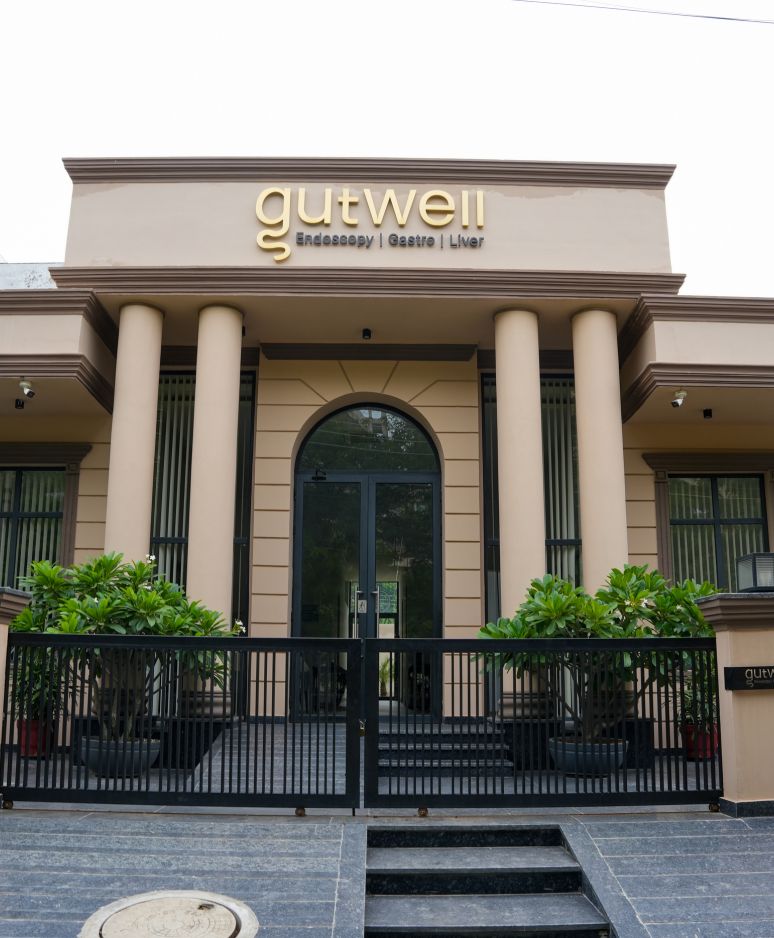
Admin August 27, 2025
Acidity and GERD
Causes, Symptoms, and the Latest Treatments
Introduction:
Acidity, also called heartburn, acid reflux, or gastric reflux, is one of the most common digestive problems worldwide. Many patients in India search for 'acidity problem treatment' or 'best doctor for GERD in Gurgaon' when they have frequent heartburn. Occasional acidity is normal, but when it happens repeatedly, it could be due to Gastroesophageal Reflux Disease (GERD). At Gutwell Clinic, we specialize in accurate diagnosis and advanced treatment of GERD, including the latest endoscopic therapies
What is GERD?
GERD occurs when stomach acid flows back into the esophagus due to weakness of the lower esophageal sphincter (LES). This repeated exposure to acid damages the esophageal lining, causing inflammation and symptoms such as heartburn, regurgitation, or sour taste. If left untreated, GERD can lead to complications such as strictures (narrowing of the esophagus), Barrett’s esophagus (a precancerous change), or even esophageal cancer in rare cases.
Common Symptoms of GERD (Acid Reflux)
- Burning sensation in the chest (heartburn), especially after meals
- Sour or bitter taste in the mouth or throat
- Frequent burping, bloating, or nausea
- Night-time cough, sore throat, or hoarseness
- Acidity worsening after lying down or bending forward
Patients often search for 'constant acidity problem' or 'treatment for heartburn in Gurgaon' when they experience these symptoms regularly.
Why Does GERD Happen?
GERD is influenced by lifestyle, dietary, and anatomical factors:
- Large meals or late-night eating
- Excess tea, coffee, alcohol, or spicy/fatty food
- Obesity and sedentary lifestyle
- Smoking
- Hiatus hernia (stomach pushes through the diaphragm)
- Certain medicines (painkillers, sedatives)
Understanding these causes helps in preventing GERD recurrence.
How is GERD Diagnosed?
At Gutwell Clinic, we use advanced tests to accurately diagnose GERD:
- Upper GI Endoscopy: Detects esophagitis, ulcers, or Barrett’s esophagus
- 24-hour pH Monitoring: Measures frequency and severity of acid reflux
- Manometry: Assesses the strength of the LES and esophageal motility
These tests help us decide the best individualized treatment plan.
Treatment Options for GERD (Acidity Problem)
The treatment of GERD depends on severity, frequency, and complications.
1. Lifestyle Modifications:
- Smaller, more frequent meals
- Avoid lying down immediately after eating
- Reduce tea, coffee, alcohol, and spicy food
- Elevate the head of the bed during sleep
- Weight reduction for overweight patients
2. Medications
- Proton Pump Inhibitors (PPIs): Most effective in reducing acid
- H2 blockers and antacids: Provide quick symptom relief
- Prokinetic drugs: Improve gastric emptying
3. Endoscopic Treatments (Latest Advances
- Antireflux Mucosal Ablation (ARMA): A cutting-edge endoscopic procedure where targeted mucosa near the LES is ablated. Healing leads to scar formation, which strengthens the valve and reduces reflux..
- GERDx: An endoscopic suturing device that reconstructs and tightens the LES. Performed entirely through the mouth, it is incision-free and provides durable symptom relief.
4. Surgical Options
- Laparoscopic Fundoplication or Magnetic Sphincter Augmentation in patients not suitable for endoscopy or with severe GERD. <
When to Seek Urgent Medical Attention
- Difficulty or pain in swallowing
- Unexplained weight loss
- Vomiting blood or black-colored stools
- Severe chest pain not explained by cardiac tests
These may indicate advanced disease or complications and need immediate medical attention.
Key Takeaway
GERD is a chronic but treatable condition. If you are experiencing frequent acidity, heartburn, or acid reflux symptoms, do not ignore them. With modern diagnostic tools and advanced endoscopic treatments like ARMA and GERDx, long-term relief is possible without the need for major surgery.
At Gutwell Clinic in Gurgaon, Dr. Sukrit Singh Sethi offers comprehensive care for GERD, from lifestyle guidance to cutting-edge endoscopic therapies. Book your consultation today and take the first step towards a reflux-free life.
GERD Treatment Options: A Quick Comparison
| Treatment | How It Works | Invasiveness | Effectiveness | Recovery Time |
|---|---|---|---|---|
| Medications (PPIs, H2 blockers, antacids) |
Reduce stomach acid or improve stomach–t ablation via esohase | Non-invasive (taken as tablets) | Good short-term relief; may not control severe or long-standing reflux | Immediate |
| Antireflux Mucosal Ablation (ARMA) | Endoscopic removal/ablation of mucosa at food pipe–scarrach junction → scarring strengthened valve | Minimally invasive (no cuts, done via endoscope) | Effective for mild to moderate reflux | 1–2 days |
| GERDx (Endoscopic Fundoplication / Magnetic Sphincter Augmentation) |
Endoscopic sutures tighten/reconstruct the lower esophageal sphincter | High effectiveness, durable results shown in studies 2–3 days | Very effective, but higher risks compared to endoscopy | 1–2 weeks |
Disclaimer
This article is for informational purposes only and should not be considered a substitute for professional medical advice. Always consult a qualified healthcare provider for diagnosis and treatment.
